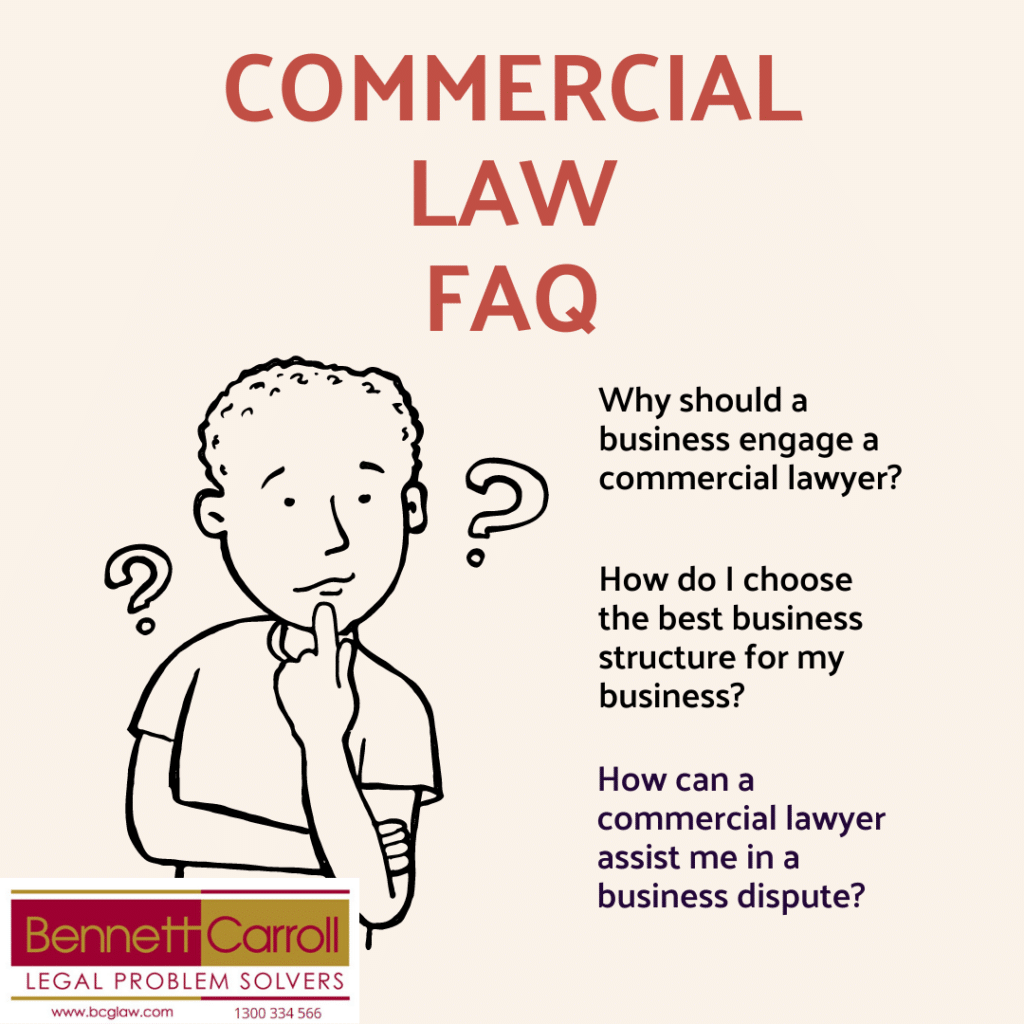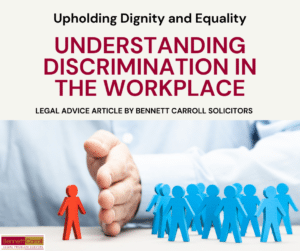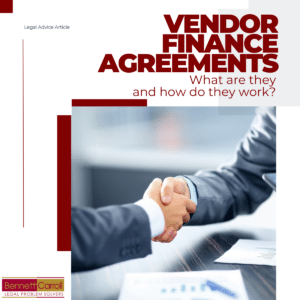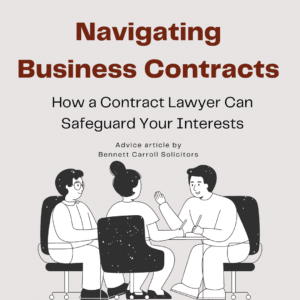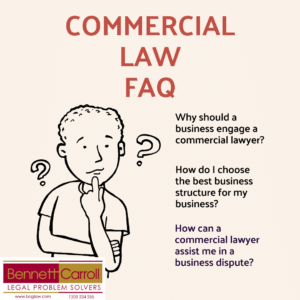
Why should a business engage a commercial lawyer?
Commercial lawyers can assist people involved in a business in a variety of manners that can avoid costly and time-consuming litigation in the future. Businesses are required to comply with various pieces of legislation controlling matters such as taxation and employment conditions, and so it is important to consult an expert commercial lawyer when you are unsure of your specific rights and responsibilities.
Commercial lawyers can also assist in the structuring and reviewing of contracts, including employment contracts, leases, sales of business and land, and client agreements. By consulting a commercial lawyer, you can ensure that any agreement is structured so that its terms and conditions benefit you (or your client), and that it is legally binding and valid.
As well as preventative measures, commercial lawyers can also benefit a business once a legal issue has arisen. Specific areas in which a commercial lawyer can assist include debt recovery, workplace disputes and unfair dismissal claims.
How do I choose the best business structure for my business?
The decision of which business structure is best suited to your business will depend on a number of factors, and can have important implications for taxation, licenses required, the control over your business and personal liability. It is therefore important to consult an expert commercial lawyer before making such an important decision, to fully understand the various pros and cons of each structure.
The simplest business structure is a sole trader. A sole trader business is relatively inexpensive to create and maintain, and gives you complete control over the business. However, as a sole trader, you are personally liable for any losses or lawsuits against the business.
A partnership is where up to 20 individuals run a business enterprise together. Like a sole trader, a partnership is relatively inexpensive to establish and maintain, and does not require income tax to be paid. As a partner, you are liable for all of the business’ debts, even if the issue arose from the actions of another partner – you are ‘jointly and severally liable’.
A company is a more complicated business structure that carries with it a variety of benefits, especially for a relatively large business. A company is a separate legal entity, which means it can sue and be sued and, importantly, gives you limited liability. Running your business as a company gives you potential tax benefits, as your tax may be able to be kept in the company or distributed to shareholders as dividends. Establishing and administering a company is more expensive, however, than a sole trader or partnership, and so may not be financially preferable for small businesses.
Finally, a trust can be employed as a business structure, often in conjunction with a company. Trusts can be expensive to operate due to the formal administrative tasks imposed on a trustee, though provide asset protection and in some cases, limited liability.
Our expert commercial lawyers can assist you in choosing which business structure is best suited to your particular business.
How can a commercial lawyer assist me in a business dispute?
Commercial lawyers understand the respective rights and responsibilities of directors compared to those of shareholders. This knowledge is integral to resolving any business dispute promptly and effectively, and is often misunderstood by the parties involved.
Business disputes may be resolved through a number of methods including mediation, arbitration or negotiation. Which method is likely to provide the best outcome for your business will depend on the facts and nature of the dispute, and is something that our commercial lawyers can assist you with by explaining to you your rights and responsibilities, and the potential outcomes of each method of resolution.
Call us on or email and safeguard your interests every step of the way.
See also:

